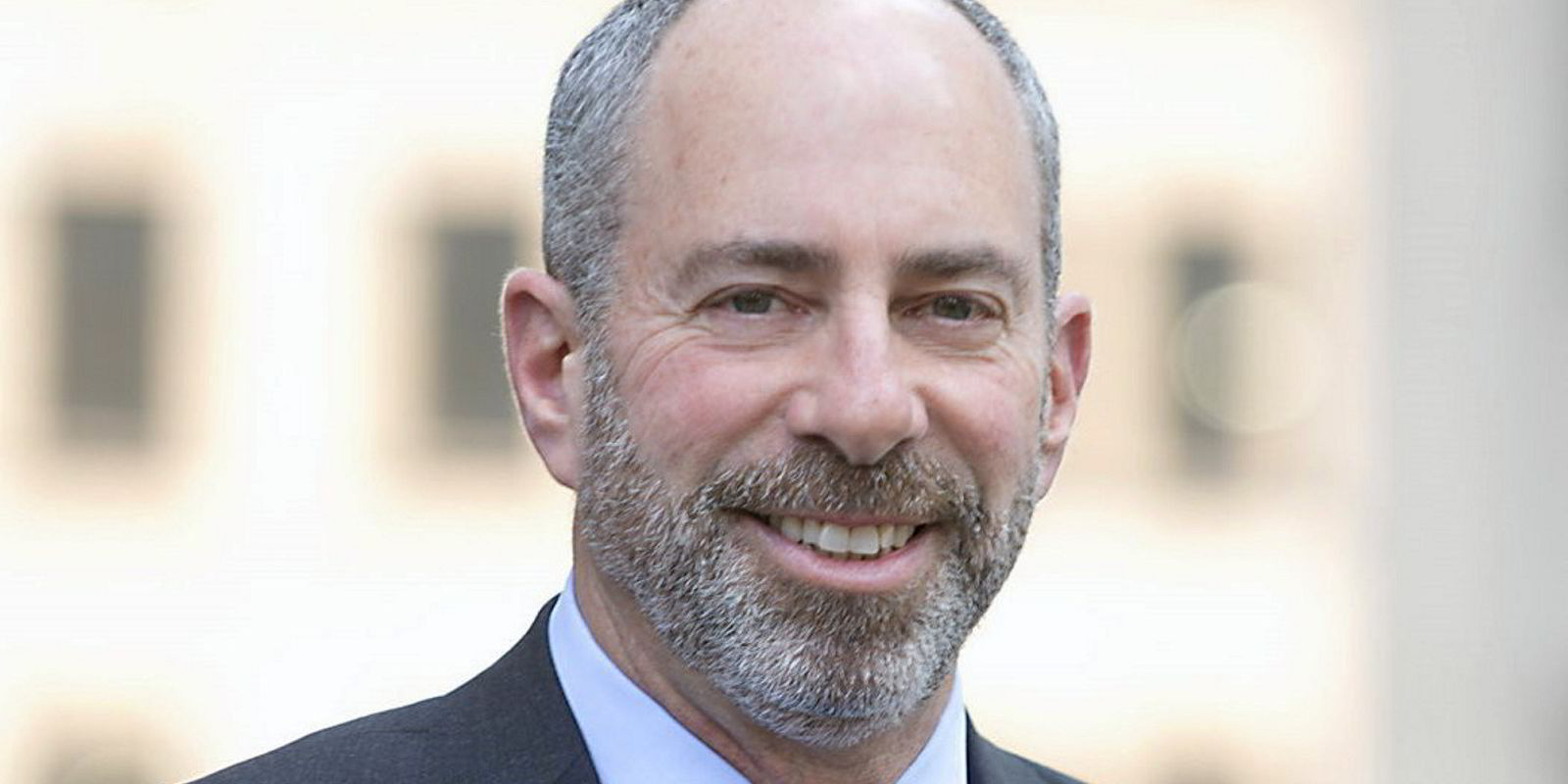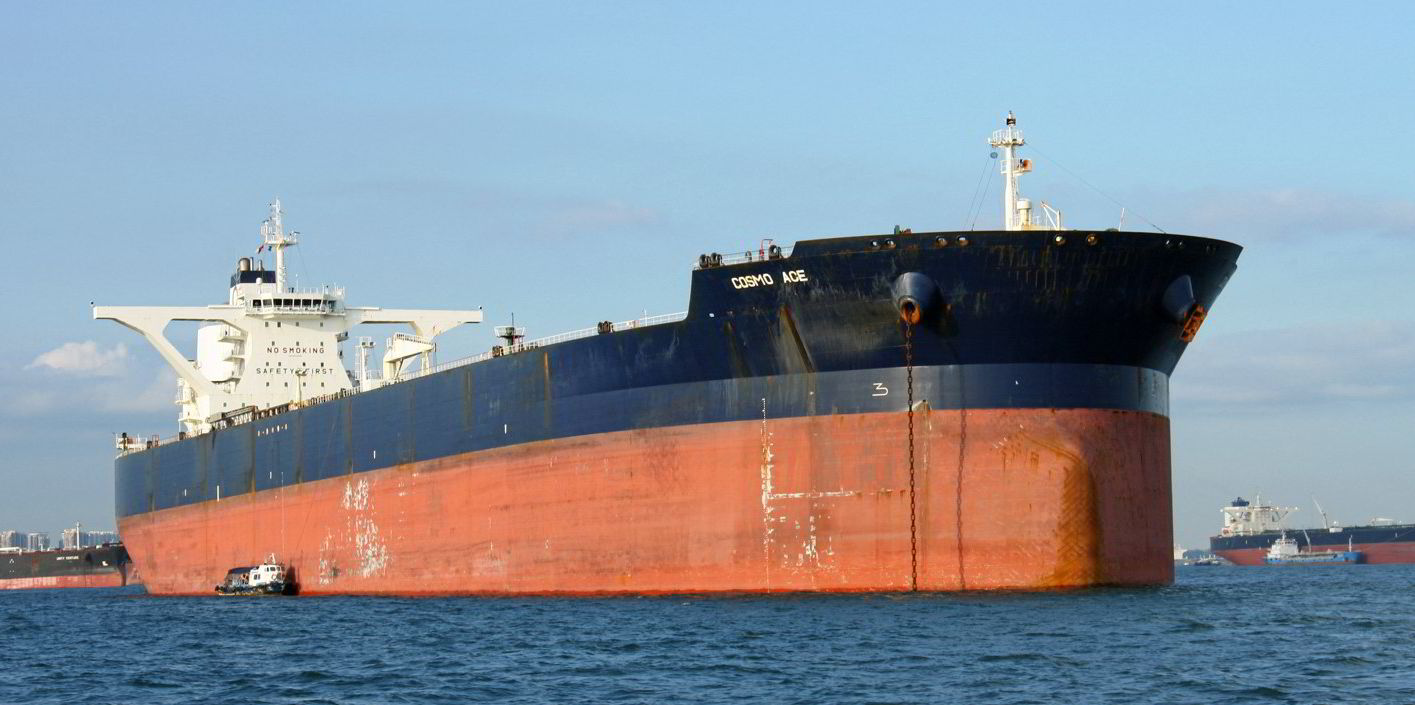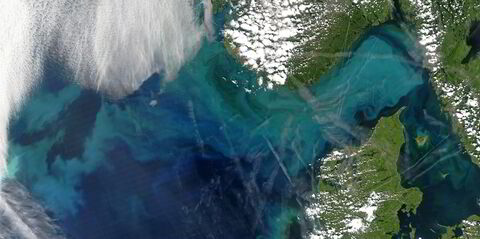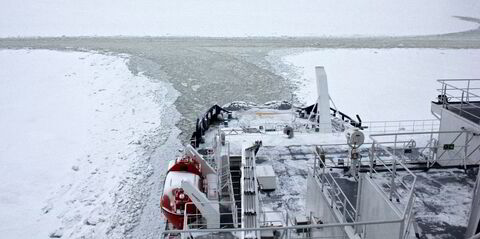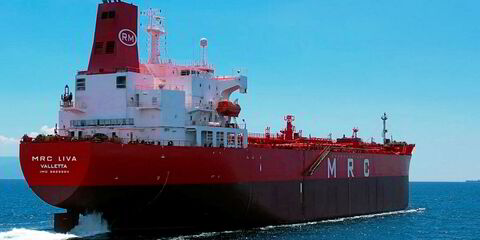Product tanker rates could triple as shipowners reap the benefits of a major reshuffling of Russian oil trades, according to Ardmore CEO Anthony Gurnee.
Major market players have already fixed ships for more than a $100,000-a-day in recent times, hitting highs not seen since the price war between Russia and Saudi Arabia in early 2020.
Rates have the potential to go significantly higher when the EU imposes an import ban on Russian crude products from February 2023, according to leading product tanker industry figures.
Rates for MR tankers are averaging about $40-45,000 a day on the spot market although there have been global variations, said Gurnee.
“Rates could easily double,” Gurnee told Capital Link’s Shipping & Marine Services Forum in London. “Practically speaking, rates could treble. We’re all fixing ships occasionally over $100,000 a day… so obviously there’s a need.”
Shipbroker Howe Robinson listed average time charter equivalent rates for MRs on Tuesday ranging from $17,000 a day up to $58,000 a day on the route from South Korea to the US west coast. Brokers reported that rates for all tanker segments were up.
The European Union is set to introduce a ban on seaborne Russian crude imports from February. It will allow Russian exports to continue outside of the 27-nation bloc but only if there is a cap on prices that limits Moscow’s profits to funnel back into its war effort in Ukraine.
The supporters of the price cap plan say that that will strengthen the negotiating hand of customers outside of the EU still taking Russian crude and will effectively force down the price that Moscow is able to negotiate.
It will allow refiners to make greater profit margins on their products and allow them to pay higher transport costs as tanker tonnage is squeezed with Russian exports and European imports forced to travel further distances to reach markets.
Carlos Balestra di Mottola, chief financial officer of d’Amico International Shipping, said some refiners were taking advantage of Russia’s shrinking markets by buying its barrels at a $30-$40 discount.
“There’s a lot of profits out there for produce refiners… and for the traders. That is one of the reaseos why the market is very strong,” he told the conference.

Gurnee is the latest figure to predict a sharp lift in profits for tanker company after Russian seaborne crude imports are banned from entering Europe on 4 December followed by oil products two months later.
After reporting its largest quarterly profits in July, Scorpio Tankers said that tonne-mileage would be ‘supercharged’ when the bans are introduced.
Maersk Tankers, which operates a pool of 170 product tankers, said it expected demand to increase by a more modest 4%.
Its chief executive Christian Ingerslev told the conference that a two-tier market was developing. One group refusing to lift oil from Russian ports with another prepared to carry Russian oil to more distant markets from Europe. The nature of the inefficient market would further lift rates, he said.
